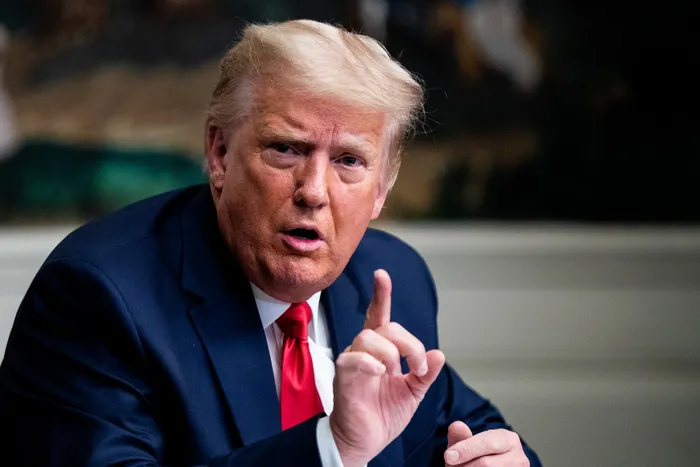
The Constitutional Court judgment means that Afrikaners who will take the US refugee status offer would remain South Africans.
Image: Independent Media Archives
THE Presidency has drawn a line in the sand in the ongoing tension between South Africa and the US, saying the Trump administration was behind inflaming tensions among the two countries, especially in using the term 'refugee' to describe those who have been invited to the US.
A group of about 54 Afrikaners who were set to leave South Africa on Sunday and resettle in the US, said they were left with little choice but to choose a new life abroad. Some of them at OR Tambo International Airport said they were waiting for a chartered plane coming from the US. Before boarding, they said they were waiting to be vetted for pending criminal cases.
Despite the broad refugee freeze, Trump in February called on the U.S. to prioritise resettling Afrikaners, saying - without any proof - that they were "victims of unjust racial discrimination." His remarks followed after white lobby groups Afriforum and Solidarity claimed that the signing of the Expropriation Bill into an Act was aimed at targeting land owned by minorities.
The assertion that minority white South Africans face discrimination from the Black majority has spread in far-right circles for years and been echoed by Trump's white South African-born ally Elon Musk.
Both have overlooked credible research by the Review of Political Economy, an international academic journal that an average white household in South Africa owns 20 times the wealth of the average Black household.
President Cyril Ramaphosa, through his spokesperson Vincent Magwenya, once again took a hard line against the US, saying: "Disturbingly, one has to admit that our sovereignty as a country is being grossly undermined and violated by the US."
Kirsten Van Deventer (48), an unemployed Afrikaner, said that she was waiting to leave as soon as possible.
“I'm waiting to go because I have nothing in this country…I can't pay for bread. My children are hungry, I have to feed them. I have no work…I don't know if this country will let me leave,” Van Deventer said.
Meisie van Tonder (38), from the Free State, said that she felt she had no choice.
“I don't want to go anywhere…I don't have to go! But my husband is not happy here, so we have decided to go. We don't know what the future holds,” Tinder said.
The Department of International Relations and Cooperation has also pushed back against the US's stance in granting the Afrikaners asylum, saying that the use of the term "refugee" to describe the Afrikaners was politically motivated to further undermine the country's sovereignty.
Its spokesperson Chrispin Phiri said: "Even if there are allegations of discrimination, it is our view that these do not meet the threshold of persecution required under domestic and international refugee law."
AfriForum's Ernst van Zyl said that while the organisation is aware of the process to resettle people to the US, it is not privy to the details.
The resettlement of Afrikaners in the US has sparked controversy, with many questioning the legitimacy of the 'refugee status'.
International relations analyst Dr John Molepo said that the resettlement has added to the already strained relations between the two countries.
“The two countries have disagreed on several issues, including South Africa's push to prosecute Israel for genocide at the International Court of Justice,” Molepo said.
Political analyst Sandile Swana said that for an asylum seeker or a refugee, there must be an evidence-based assessment that shows that that person has legitimate rights that makes it impossible for them to remain in the country of their origin.
“We have many unstable areas here, whether in Eritrea, the DRC, Congo, and so on, where refugees would come to South Africa, running away from verifiable threats that are well established. In South Africa, we do not have verifiable threats that target a specific ethnic group, specifically the white Afrikaners, or people who hold certain political views or certain religious beliefs,” Swana said.
Cape Times
Related Topics: